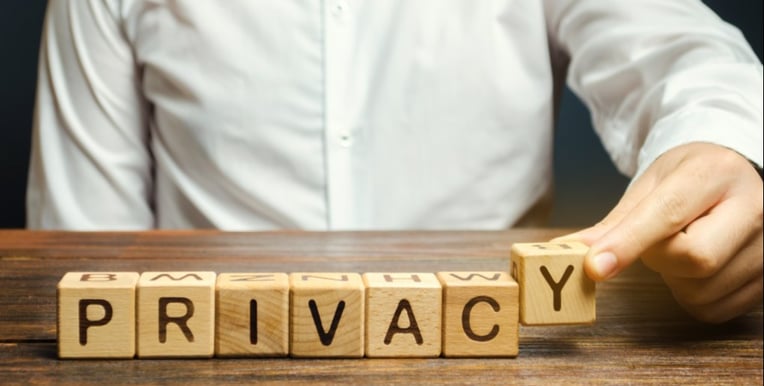
Many people don’t give much thought to protecting their identity until they’ve been a victim of a breach or ID theft. But there are little things you can do every day to prevent such events from happening.
The everyday decisions you make impact how easy it is for scammers or hackers to steal your personal data. Start employing these best practices to protect and secure your data now.
1. Change passwords regularly
You are probably aware that having a secure password that is more complicated than "Password123" is essential. But even with a very secure password, you could become the victim of ID theft if you use the same password for everything and don't change that password often enough.
Make your passwords long, with special characters and numerals but also be sure you’re changing those passwords every six months to a year at the maximum.
2. Vary your usernames
Just like passwords, usernames can be information that hackers use to get access to your data. Changing your usernames and using different ones for different accounts is smart.
If you have the option, it’s best to avoid using your email address as your username. Some accounts still require that you use your email address as your username, which is why it’s essential to have very secure passwords. But consider that your email address is easily sourced information about you, just like a phone number or your first and last name. So when you can, avoid it as a username.
3. Review social media privacy settings
It’s time for a social media profile audit. You might not realize that you’re sharing large amounts of personal information on your social media profiles, including your birthday and personal interests. The more information that scammers can find about you, the easier it is for them to steal your identity.
For example, your love for Taylor Swift could help them guess your passwords of #TSwift4Life. Or providing easy access to a headshot of you from your profile picture can make it simpler to create a false ID that the scammer can use to set up accounts or loans in your name.
Hide all personal data that you can on these platforms. Ideally, you don’t even want friends of friends to be able to see this information because you just never know how secure their privacy settings and passwords are. If they become a victim of a breach or identity theft, their social media profile could be vulnerable, leaving yours vulnerable as well.
4. Review bank and credit card statements daily
Thanks to technology, checking bank statements and credit cards is straightforward. Today, you can carry around those statements on your smartphone. And because it’s so simple, it’s wise to monitor these accounts daily or at least several times a week.
This will allow you to spot fraud quickly. Add the practice to your daily routine, such as something you do first thing in the morning or before you begin your evening routines.
Sign up for fraud alerts on all accounts. While this might seem annoying, you'll need to confirm those transactions to avoid an account shutdown, if it catches fraud immediately, it will be worth it.
5. Review your credit report
Many financial companies such as credit card issuers and mortgage lenders provide a monthly FICO credit score now. Don’t ignore those emails and notifications you get about your credit score. Take a few seconds to review the score to check for any major changes. If your credit suddenly plummets, you should investigate why.
As part of the credit report, you can see open lines of credit. Make sure you don’t have any new ones that you aren’t aware of. You can also visit credit.com every 14 days to see your free credit score, or visit annualcreditreport.com to request a free copy.
6. Freeze your credit
If you’re not planning on opening any new lines of credit in the near future, you may want to consider a credit freeze.
This makes it so that no organization can do a credit check on you until you remove the freeze. Just be sure that you unfreeze your credit before you go car shopping or co-sign a college loan for your child. You won’t be able to complete these activities until you unfreeze your credit.
7. Avoid public Wi-Fi
Many public Wi-Fi networks are not secure. So when you use these networks and access your bank account or pay bills, scam artists can see your private information fairly easily.
Do all sensitive work on a private network. Don’t even online shop when you’re on a public network because your credit card data could be at risk.
8. Don’t allow your computer or accounts to remember you
Many online accounts have a box you can check to remember you, or your browser might come up with a message asking if you want it to remember your password. Always say no to these conveniences.
If your device gets into the wrong hands, the individual could have full access to private account information. While it might seem annoying to type your username and password regularly, it’s much safer to do so.
9. Turn off location services
The more data about yourself and your habits that you share, the more fuel you give scammers to steal your identity. Go through your mobile apps and see where location services are turned on. Turn it off for all apps where it isn't essential and change the settings to only while in use for apps that require the location services.
When you shop online, even from your laptop or computer, don’t allow websites to use your location. This data allows people to identify you and your habits.
10. Don’t overshare on social media
You don't really need to share information about your vacation in real-time on social media. It's much smarter to wait to share any photos or information until your return.
When you show where you are in real-time, you help scammers identify recent credit card transactions and other data points that they could use against you.
If you feel compelled to share those pictures, wait a few days until you return home to avoid providing too much information.
Summary
Protecting yourself against identity theft is crucial. Checking your bank accounts and credit report regularly can help you recognize if you have been a victim. Also, be aware of the information websites garner from you, as that information could be used by criminals to exploit you and steal your identity. In today’s technological landscape identity thieves are getting more creative, so be sure to protect yourself.
Need more information on protecting your identity?
We’re here as a resource. Sunset Financial offers tips and insights into protecting your identity and managing your finances. Contact us for more information.






-jpg-3.jpeg)


